Does Chai Tea Make You Poop
Shop our Pu Erh Tea collections!
Chai tea is a blend of black tea, spices, milk, and sweeteners.
Black Tea
Black tea is the base component. Rich in antioxidants, it contributes caffeine and thearubigins.
Bestsellers

2022 Pu-Erh Tea Sample Box (Free Shipping)

2022 Yi Pin Chen Sheng Raw Pu-erh Tea Sample Box

2022 Lao Ban Zhang Raw Pu-erh Tea

2022 Na Ka Raw Pu-erh Tea

2023 Ban Zhang Yin Xiang Raw Pu-erh Tea

2017 Rong Pu Ripe Pu-erh Tea
Common Spices
- Cinnamon: Adds warmth and sweetness.
- Cardamom: Provides a unique, aromatic flavor.
- Ginger: Offers a spicy kick and aids digestion.
- Cloves: Impart a robust, earthy taste.
- Black Pepper: Enhances spiciness and stimulates the digestive system.
Milk
Milk, typically cow's milk, adds creaminess and balances out the strong flavors of the spices. You can also use plant-based alternatives like almond, soy, or coconut milk.
Sweeteners
Common sweeteners include sugar, honey, or maple syrup. These enhance the flavors and provide additional energy.
Combinations
You can adjust the proportions of spices and sweeteners to suit your taste. Some recipes might also include nutmeg, star anise, or vanilla for extra depth.
Nutritional Content
Chai tea contains nutrients like calcium (from milk), vitamins (from spices), and antioxidants (from tea).
Effects of Chai Tea on Digestion
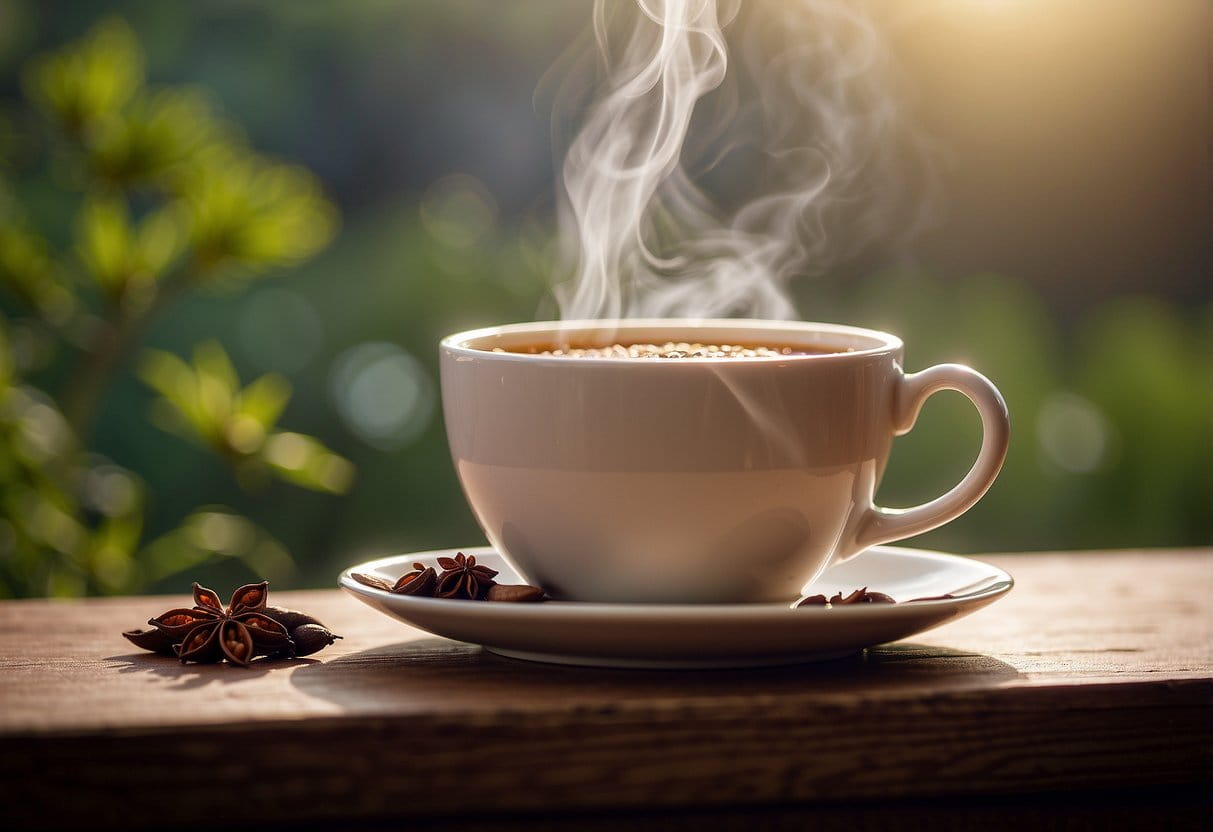
Chai tea contains several ingredients that may influence your digestive system. Key components like ginger, cinnamon, and cardamom have properties believed to aid digestion.
Ginger
Ginger is often used to relieve nausea and is known for its potential to support digestive health. It can promote better digestion by increasing saliva and other digestive fluids.
Cinnamon
Cinnamon may help reduce inflammation in the digestive tract. This can be particularly beneficial for those with digestive issues, as it can soothe discomfort and aid in smoother digestion.
Cardamom
Cardamom is another spice found in chai tea. It can help with digestive problems like bloating and gas. Its antispasmodic properties might also relieve stomach cramps.
Potential Laxative Effect
Drinking chai tea could make you feel the need to poop more frequently. This is due to the caffeine in black tea, which can stimulate bowel movements.
Hydration and Fiber
Chai tea made with milk can contribute to your daily fluid intake. Staying hydrated helps digestion. However, the tea itself lacks fiber, so it's important to consume fiber-rich foods as well.
Possible Side Effects
For some people, the caffeine in chai tea can cause digestive issues like acid reflux. If you have a sensitive stomach, you might experience discomfort or increased bowel activity after drinking chai.
Lao Ban Zhang

2024 Lao Ban Zhang Ripe Pu-erh Tea

2022 Lao Ban Zhang Raw Pu-erh Tea

2023 Ding Feng- Lao Ban Zhang Raw Pu-erh Tea (42g)

2024 Xiao Ban Zhang Raw Pu-erh Tea

2020 Lao Ban Zhang Raw Pu-erh Tea 125g
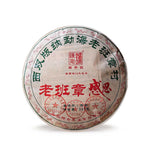
2025 Lao Ban Zhang -Gan En Raw Pu-erh Tea 357g
Recommended Consumption
Moderation is key. Drinking 1-2 cups of chai tea daily can provide digestive benefits without overwhelming your system. Always listen to your body and adjust your intake accordingly.
Key Ingredients Affecting Bowel Movements

Certain ingredients in chai tea can influence your digestive system and potentially affect bowel movements.
Caffeine and Digestion
Caffeine is a natural stimulant found in black tea, a primary component of chai tea. Its stimulating effect can increase bowel motility, promoting more frequent bowel movements.
Effects on digestion:
- Stimulates the colon: Caffeine can enhance contractions in the colon, pushing waste through the digestive tract.
- Acts as a diuretic: It increases urine production, which can lead to more efficient removal of waste.
Caffeine's impact on digestion varies. Some people may experience stronger effects, while others might not notice significant changes.
Spices and Digestive Health
Chai tea contains a blend of spices like ginger, cinnamon, cardamom, and cloves. These spices can positively influence digestion and bowel movements.
Ginger:
- Aids digestion: Known for reducing nausea and improving digestion.
- Anti-inflammatory properties: Helps soothe the digestive tract.
Cinnamon:
- Stimulates digestion: Helps break down fats, thereby easing the digestive process.
- Regulates blood sugar: Provides a more stable digestive environment.
Cardamom and Cloves:
- Enhance metabolism: These spices can boost digestion.
- Antimicrobial properties: Help maintain a healthy balance of gut bacteria.
Together, these ingredients can create a beneficial effect on your digestive system, promoting regular bowel movements.
Mechanisms of Digestion and Excretion
When you consume food or beverages, your body begins the digestion process. Digestion involves breaking down food into smaller components that can be absorbed.
Mouth and Stomach
Digestion starts in your mouth with chewing and saliva. Your stomach then uses acid and enzymes to further break down food.
Small Intestine
In the small intestine, digestive enzymes and bile help in nutrient absorption. This is where most of the nutrients from food are absorbed into your bloodstream.
Large Intestine
The large intestine absorbs water and salts from the remaining indigestible food matter, forming solid waste.
Excretion
Your body eliminates waste through the process of excretion. The waste is stored in the rectum until it is expelled through the anus.
Factors Affecting Digestion and Excretion
Certain foods and beverages can influence this process. Spices, caffeine, and other substances can stimulate digestion and impact bowel movements.
Summary Table
| Stage | Key Function |
|---|---|
| Mouth | Chewing, saliva breakdown |
| Stomach | Acid and enzyme digestion |
| Small Intestine | Nutrient absorption |
| Large Intestine | Water and salt absorption, waste formation |
| Excretion | Elimination of waste |
Herbal Tea vs. Traditional Chai Tea
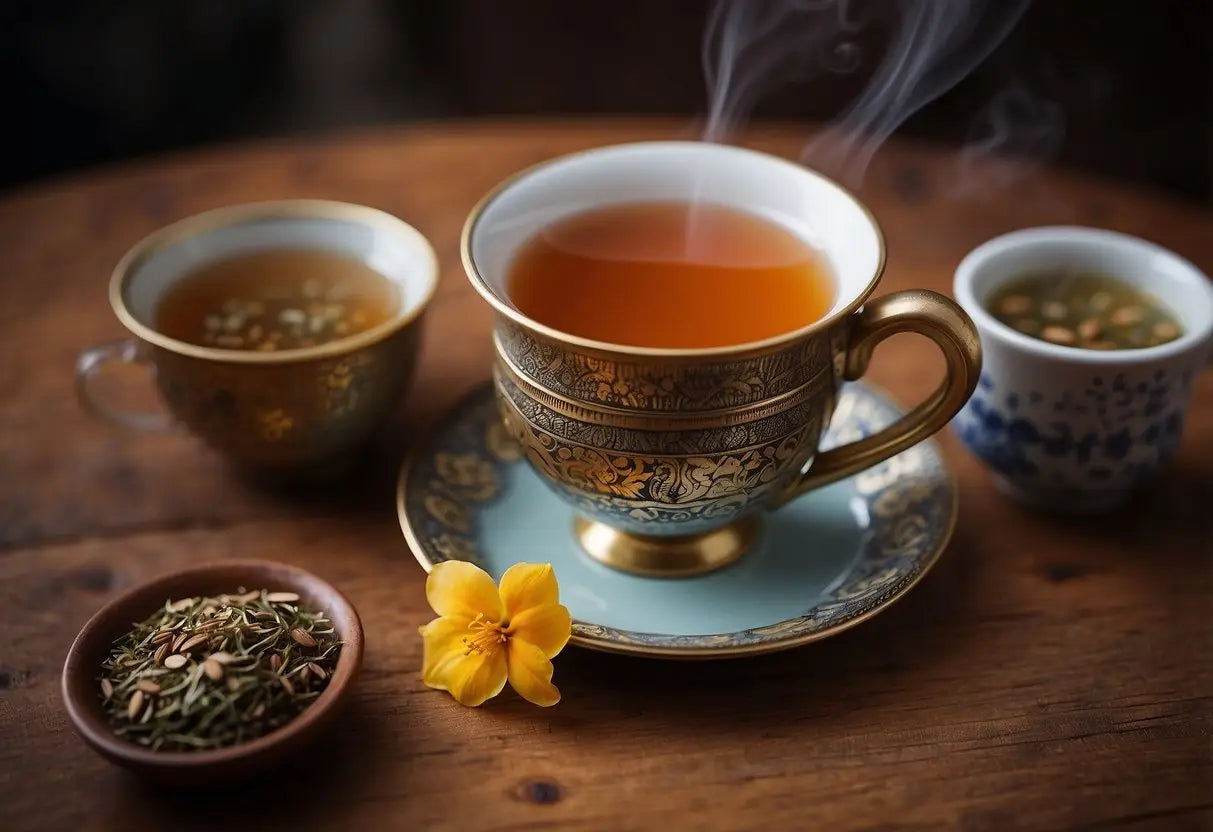
When comparing herbal tea to traditional chai tea, there are several key differences to consider.
Ingredients:
-
Herbal Tea:
- Typically made from a blend of herbs, flowers, and spices.
- Does not usually contain tea leaves from Camellia sinensis.
- Caffeine-free.
-
Traditional Chai Tea:
- Made from black tea leaves combined with various spices such as cinnamon, cardamom, and ginger.
- Contains caffeine.
Flavor Profile:
-
Herbal Tea:
- Flavor varies widely depending on the herbs used.
- Can range from fruity and floral to earthy and minty.
-
Traditional Chai Tea:
- Rich and spicy with a strong tea base.
- Often sweetened and combined with milk for a creamy texture.
Health Benefits:
-
Herbal Tea:
- Often consumed for its potential relaxing and digestive benefits.
- Common herbs like peppermint or chamomile offer specific functions such as soothing an upset stomach.
-
Traditional Chai Tea:
- Contains antioxidants from black tea.
- Spices like ginger and cinnamon can support digestive health.
Cultural Significance:
-
Herbal Tea:
- Widely used in various cultures for medicinal purposes.
- Different regions use specific herbs for traditional remedies.
-
Traditional Chai Tea:
- Integral part of Indian culture, often enjoyed daily.
- Associated with hospitality and social gatherings.
Understanding these differences can help you choose which type of tea best suits your needs and preferences.
Potential Laxative Properties of Chai Ingredients
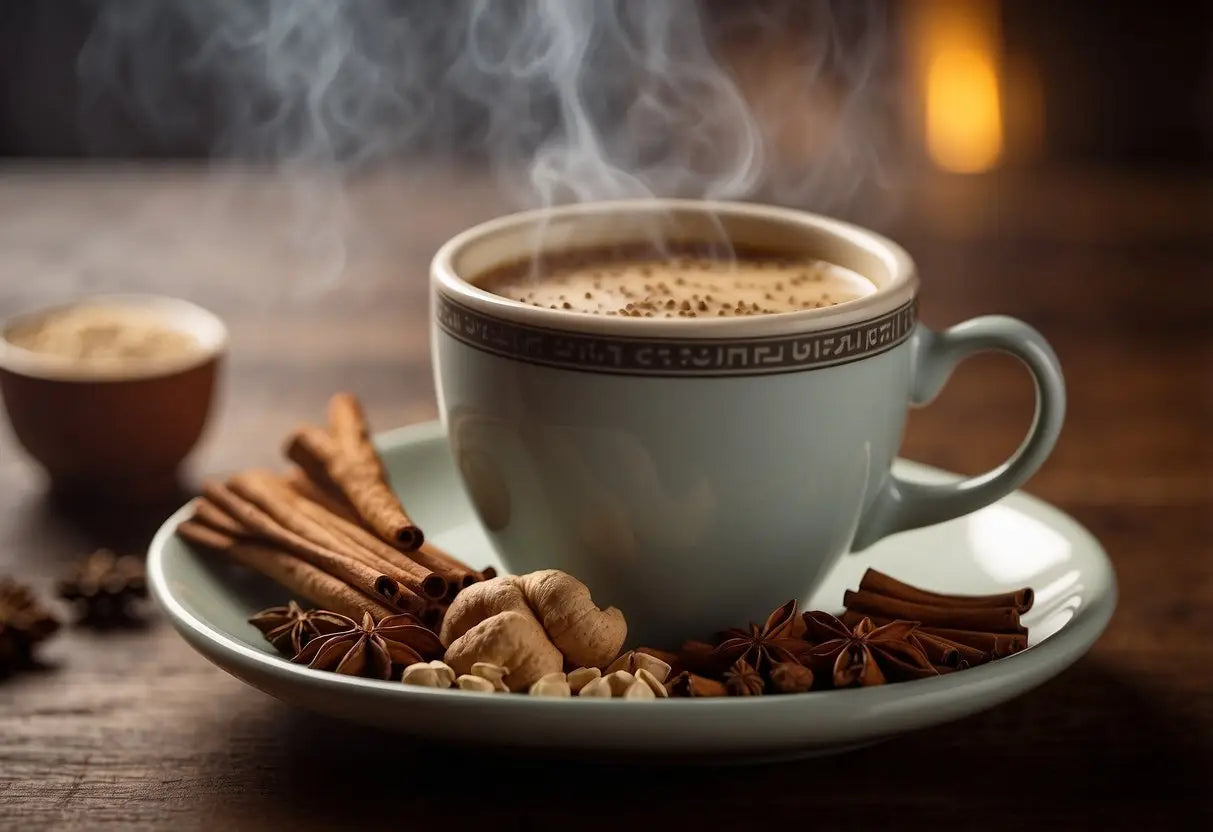
Chai tea contains several ingredients known for their potential laxative effects.
One primary ingredient is ginger. Ginger can stimulate digestion and increase motility, potentially aiding in bowel movements.
Black tea, another key ingredient, contains caffeine. Caffeine can act as a stimulant for the colon, promoting movement in the intestines.
Cinnamon is also commonly found in chai tea. Cinnamon has been noted for its ability to stimulate gastric juices, which can help in digestive processes.
Cloves, present in chai, have mild natural laxative effects. They can help in relieving gas and treating digestive issues.
Cardamom may also play a role. Known for its digestive benefits, cardamom can aid in easing bowel movements.
Here's a quick look at these ingredients:
| Ingredient | Potential Laxative Effect |
|---|---|
| Ginger | Stimulates digestion, increases motility |
| Black Tea | Contains caffeine, stimulates colon |
| Cinnamon | Stimulates gastric juices |
| Cloves | Mild laxative effect |
| Cardamom | Aids in bowel movements |
The blend of these ingredients in chai tea may contribute to its laxative properties. You might experience these effects depending on your individual sensitivity to the components. Adjusting the quantity of chai consumed could mitigate or enhance these effects.
Dietary Considerations and Chai Tea Consumption
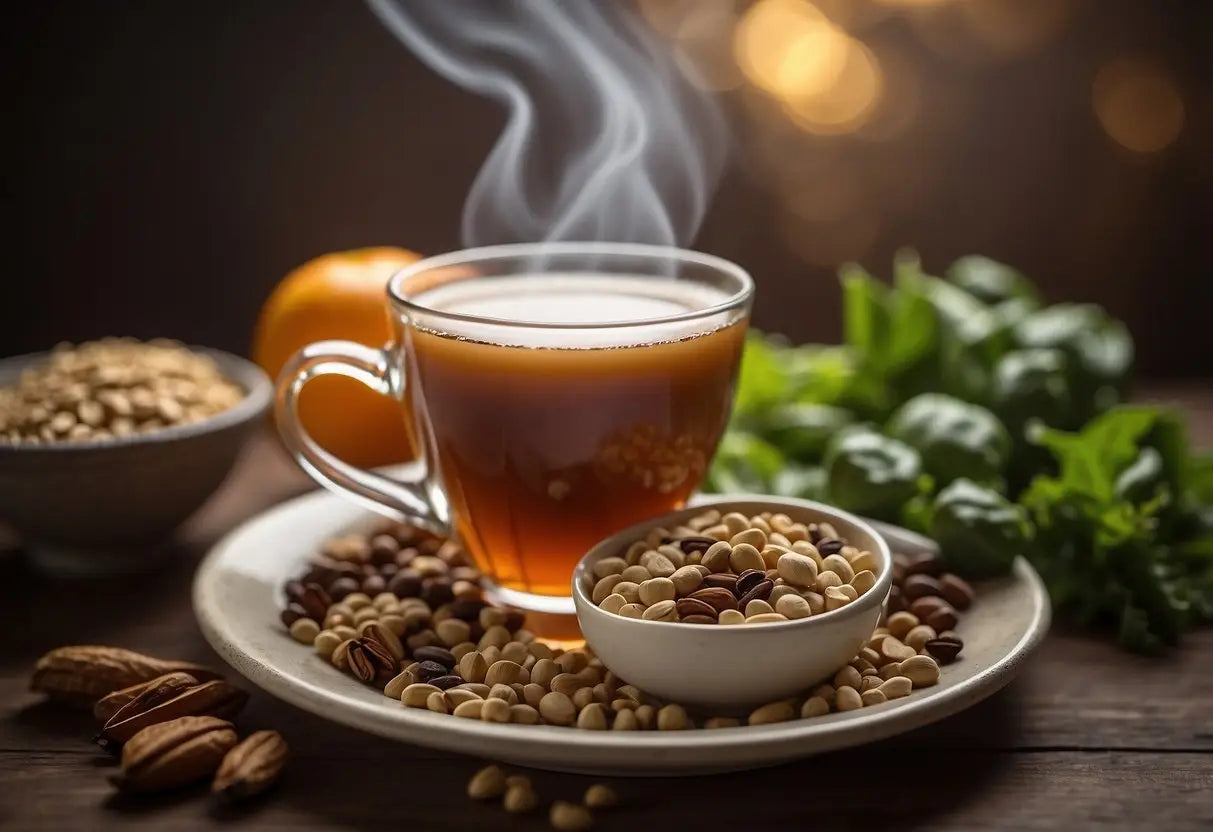
When consuming chai tea, you should be aware of several dietary considerations. One consideration is the caffeine content. Although chai tea usually contains less caffeine than coffee, it can still affect those who are sensitive to stimulants.
Chai tea often includes spices like cinnamon, ginger, and cardamom. These spices can have digestive effects. For some, they may help with digestion. For others, they might lead to gastrointestinal discomfort.
People who are lactose intolerant must be cautious with chai tea lattes made with regular milk. Opt for alternatives such as almond or soy milk. This can help avoid digestive issues and provide a pleasant experience.
Chai tea may also include added sugars. Check the nutritional information if you're watching your sugar intake. Unsweetened versions are available if you prefer to avoid extra sugars.
Some individuals may experience spicy or acidic reflux due to the ingredients in chai tea. If you have a sensitive stomach, consider starting with a small amount to see how your body reacts.
Here's a quick checklist:
Caffeine Sensitivity:
- Chai tea contains some caffeine.
- It may impact those sensitive to stimulants.
Spice Sensitivity:
- Contains spices that can aid digestion.
- May cause discomfort in sensitive individuals.
Lactose Intolerance:
- Choose plant-based milk alternatives.
- Avoid regular milk if lactose intolerant.
Sugar Content:
- Check for added sugars.
- Choose unsweetened versions if needed.
By considering these factors, you can enjoy chai tea while aligning with your dietary needs.
Cultural Variations of Chai Tea Preparation
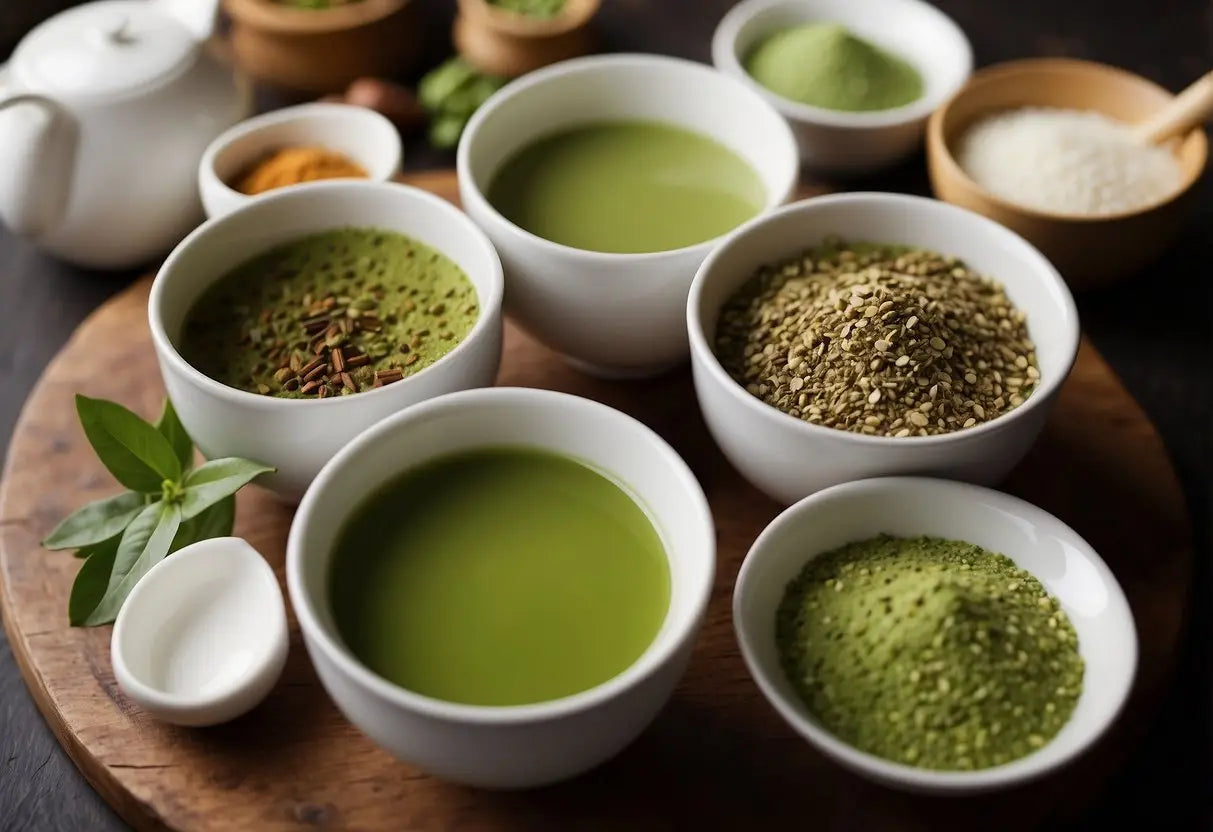
Chai tea preparation varies widely across different cultures.
India
In India, chai is commonly made with strong black tea, milk, sugar, and various spices like cardamom, ginger, and cloves.
Kenya
Kenyan chai, often called "chai ya majani," is typically brewed with black tea, sugar, and milk. It’s similar to the Indian version but uses fewer spices.
Middle East
In the Middle East, chai tea often includes black tea and strong spices, with additional flavors like saffron and rose water sometimes added.
Tibet
Tibetan chai, known as "Po Cha" or "butter tea," uses black tea, yak butter, salt, and occasionally milk, creating a rich and salty drink.
Table of Ingredients by Region
| Country | Common Ingredients |
|---|---|
| India | Black tea, milk, sugar, cardamom, ginger |
| Kenya | Black tea, milk, sugar |
| Middle East | Black tea, strong spices, saffron, rose water |
| Tibet | Black tea, yak butter, salt, milk |
Each region adds its unique touch, contributing to a rich tapestry of chai tea traditions.
Personal Tolerance and Digestive Response
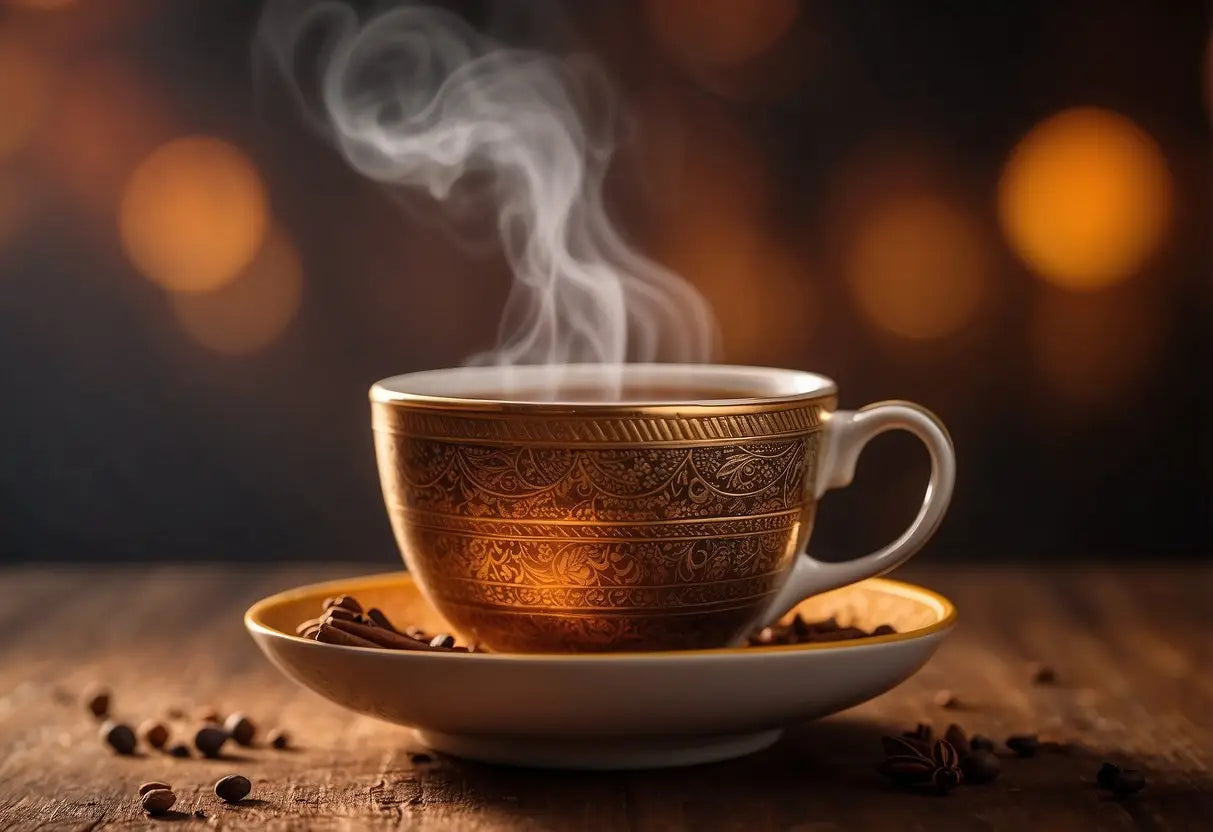
Your body's reaction to chai tea can vary based on individual tolerance levels.
Some people experience increased bowel movements due to the caffeine and spices in chai.
Caffeine stimulates the digestive system, potentially leading to more frequent pooping.
Common ingredients in chai tea that affect digestion:
| Ingredient | Potential Effect |
|---|---|
| Black Tea | Contains caffeine |
| Ginger | Aids digestion, can be a mild laxative |
| Cardamom | Can soothe digestive issues |
| Cinnamon | May help regulate bowel movements |
Consider your caffeine tolerance. If you’re sensitive to caffeine, even a small amount can stimulate your bowels.
Spices like ginger and cinnamon have traditionally been used to aid digestion.
Tips:
- Monitor: Track how your body reacts after drinking chai.
- Adjust: You can adjust the amount of chai you consume.
- Hydrate: Drink plenty of water to help ease digestion.
People with sensitive stomachs might experience more intense reactions.
Note that everyone’s digestive system is unique. What affects one person may not impact another the same way.
Consuming chai tea regularly might help your system adjust over time.
Recognize that personal tolerance levels play a significant role in how chai tea affects your digestion.
Consulting Healthcare Professionals
It's important to seek advice from healthcare professionals if you're concerned about chai tea's effects on your digestive system.
Doctors can provide personalized guidance based on your medical history and existing health conditions.
You may also want to consult a dietitian to understand how chai tea fits into your diet and nutritional needs.
It can be helpful to keep a food diary to track how chai tea affects you, which you can share with your healthcare provider.
By discussing your experiences, you can receive tailored recommendations and make more informed decisions.
← Older post Newer post →
